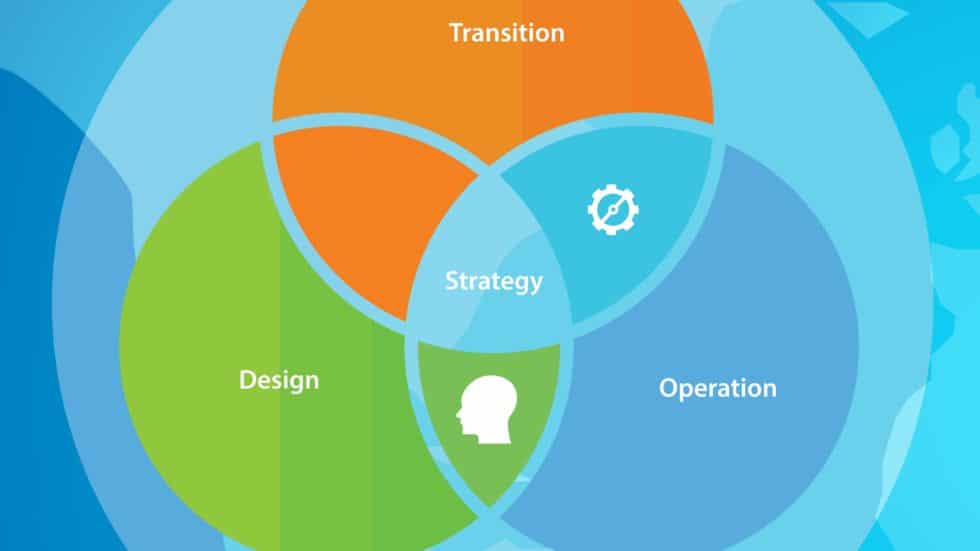What To Expect From ITIL 4 Foundation
June 19, 2020 – Joe Arsenault
Last year, ITIL 4 Foundation was officially rolled out. This is the first phase of ITIL 4 and as its title hints, this sets the foundation for ITIL 4. Global Knowledge ranks the ITIL 4 Foundation certificate in their Top 10 with an avg salary of $129,402. Now newly ITIL 4 Foundation-certified and ITIL 3 Expert, Joe Arsenault has been able to provide a glimpse at what to expect from ITIL 4 Foundation.
Focus On Value Creation
One of the most important updates in ITIL 4 is the emphasis on how value is co-created between the provider and the customer. This represents a significant change of thinking from previous versions of ITIL that placed the responsibility for value creation primarily on the service provider.
The Service Value System
To help practitioners understand how to co-create value, ITIL 4 introduces the ITIL Service Value System (SVS). This system illustrates how all parts of an organization work together to create value through IT-enabled services. At the core of the SVS is the service value chain. The service value chain provides a flexible operating model for the development, delivery, and improvement of products and services.
Four Dimensions of Service Management
One of ITIL 4’s goal is to ensure an organization takes a holistic approach to service management. ITIL 4 introduces the four dimensions of service management to help make this happen. The four dimensions are:
- Organization and people – The culture, structure, and capacity of an organization, as well as people’s skills and competencies.
- Information and technology – The information and knowledge necessary for the management of services and the technologies needed.
- Partners and suppliers – Includes the organization’s relationships with other organizations involved in the delivery, support, and improvement of services.
- Value streams and processes – How the parts of the organization work in an integrated and coordinated way to enable value creation through products and services.
Guiding Principles
The Guiding Principles are a core component of ITIL 4. This is practical guidance that can be used in any organization, regardless of industry, management structure, or goals and objectives. The guiding principles represent the core message of ITIL and support good decision-making and continual improvement.
- Focus on value. Everything IT does must create value for stakeholders.
- Start where you are. There is no reason to build something new if you can build upon something in place. Ignore the “Shiny Object Syndrome” of building something from scratch and consider what current services or process already exist.
- Progress iteratively with feedback. Use feedback throughout the process to stay focused and on task.
- Collaborate and promote visibility. ITIL 4 wants to end silos and promote collaboration. Information should be shared across departments as much as possible.
- Think and work holistically. The organization must see the big picture, not just a piece of a puzzle. Just like you can no longer work in silos, you can no longer just focus on fixing one part of the conveyor belt.
- Keep it simple and practical. Avoid adding unnecessary steps to complicate the process. Stay focused on creating value and avoid anything that does contribute to value.
- Optimize and automate. The key is to optimize before you automate. Ensure your processes are as simple and effective as possible before searching for ways to automate.
An Encompassing Approach
In a nutshell, ITIL 4 provides an evolved view of business and value and what it means to contribute to value. It facilitates integration of concepts from other frameworks including Lean IT, Agile and others. ITIL 4 focuses on adaptability and flexibility so that the right practices can be applied to an organization’s specific situations to ensure the most valuable outcomes.

